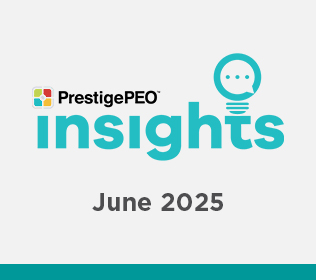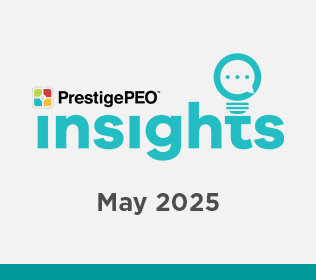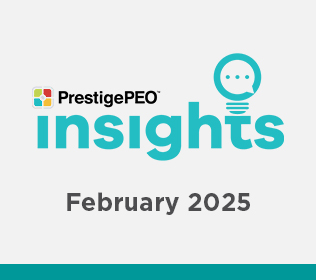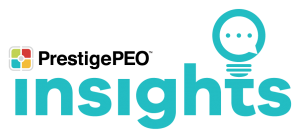
The latest news relevant to you and your business


A Proactive Approach to Managing Healthcare Costs
Healthcare costs continue to rise, but that doesn’t mean your business has to bear the full burden. In this month’s featured article, PrestigePEO’s VP of Benefits, Stacie Alvaro, breaks down the top trends in driving costs and how SMBs can proactively manage them with smarter strategies.
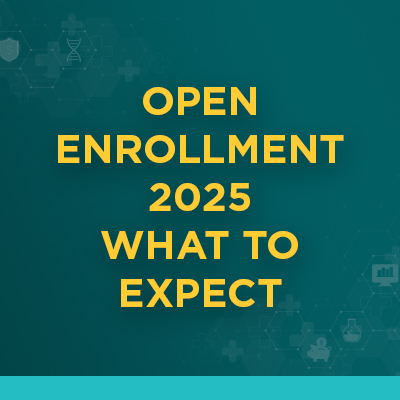
Get Ready for a Streamlined Open Enrollment Experience
Get Ready for a Streamlined Open Enrollment Experience
Open Enrollment season is almost here, and PrestigePEO is here to ensure the process is smooth, efficient, and stress-free for you and your employees. We’ve enhanced our Renewal Portal to provide an even more user-friendly experience—allowing you to compare plans, model contribution scenarios, and make confident, informed decisions.
This year also brings exciting new benefit options designed to support your team’s evolving needs. Be on the lookout for emails with access to your portal, invites to upcoming webinars, and important next steps for enrollment.
As always, your dedicated Benefits Specialist is here to help every step of the way.
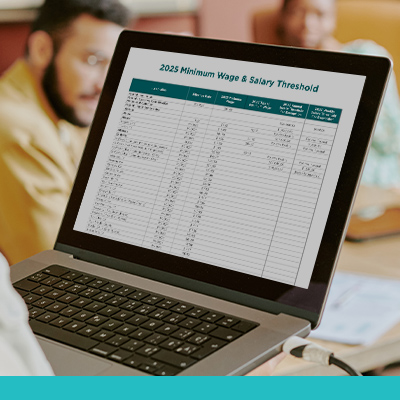
Your Guide to Additional Minimum Wage Updates
Mid-Year Wage Updates Take Effect July 1, is Your Business Ready?
Minimum wage rates continue to evolve across the country and it’s essential to stay on top of the latest changes to remain compliant and support your employees.
Despite our previous update, even more states and localities have announced updates to their minimum wage requirements, some of which may require prompt payroll adjustments for affected employees.
To help you stay ahead, we’ve updated our 2025 Mid-Year Minimum Wage Guide with the latest information, organized by state and locality for quick and easy reference. Use this resource to plan accordingly, avoid compliance issues, and ensure competitive compensation practices.
If you have any questions, your dedicated PrestigePEO Payroll Specialist is here to support you.

Master The Renewal Portal:
Open Enrollment Made Easier
Helping You Navigate the New Renewal Portal with Confidence
We’re making Open Enrollment even easier this year, starting with a brand-new experience in our Renewal Portal. Join Kathleen Sullivan, Benefits Account Manager at PrestigePEO, for an exclusive session to walk you through the portal’s latest enhancements.
You’ll learn to navigate new features, compare plans and contributions, and make confident, informed decisions for your business and employees. Whether you’re new to the portal or need a refresher, this session is your key to a smooth renewal process.

Oxford/UHC and Memorial Sloan Kettering Reached an Agreement for Continued Access to Quality Cancer Care
Access to MSK Secured for UHC and Oxford Members
Earlier this month, Oxford/UnitedHealthcare (UHC) announced a new multi-year agreement with Memorial Sloan Kettering Cancer Center (MSK), ensuring continued access for all members enrolled in UHC and Oxford employer-sponsored plans.
This resolution guarantees uninterrupted access to MSK’s world-class cancer care and reflects UHC’s ongoing commitment to quality and affordability.
If you have any questions, please get in touch with your Benefits Specialist.

UnitedHealthcare/Oxford Renews Agreement with Stony Brook Medicine Continued Trusted Care and Uninterrupted Access
Stony Brook Remains In-Network for UHC and Oxford Plans
As shared earlier this month, UnitedHealthcare has finalized a multi-year agreement with Stony Brook Medicine. This ensures uninterrupted, in-network access to hospitals and providers across Long Island for members enrolled in UHC, Oxford, Medicare Advantage, Medicaid, and The Empire Plan.
No action is required, coverage continues without disruption, and members have been notified directly.
For any questions, please reach out to your dedicated PrestigePEO Benefits Specialist.
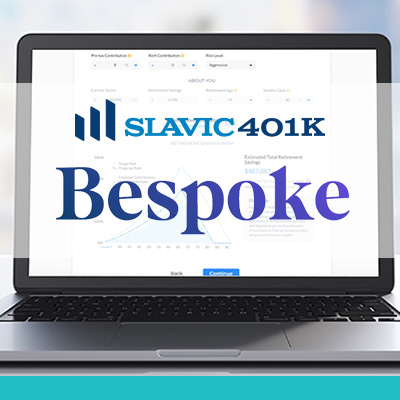
Introducing Bespoke: Smarter Investing for Your 401(k)
New Digital Investing Tool from Slavic 401(k) Launches August 25!
We’re excited to announce the addition of the Bespoke Portfolio Service, an advanced digital investing solution, which will be available to PrestigePEO 401(k) participants starting August 25.
Bespoke is an optional service from Slavic401k designed to make retirement planning smarter, simpler, and more personalized. Using your responses to a short risk and suitability questionnaire, Bespoke creates a tailored investment strategy and recommended savings rate. It then automatically rebalances your portfolio every quarter to keep you on track.
Built directly into the Slavic401k platform, Bespoke is a fully integrated robo-advisor that operates under SMF’s role as an ERISA 3(38) fiduciary. Participants who opt-in will be charged a low annual fee of 0.35% (billed quarterly).
Get ready to take the guesswork out of investing and build a retirement plan that fits your goals and timeline. If you have any questions, please contact your Retirement Specialist.
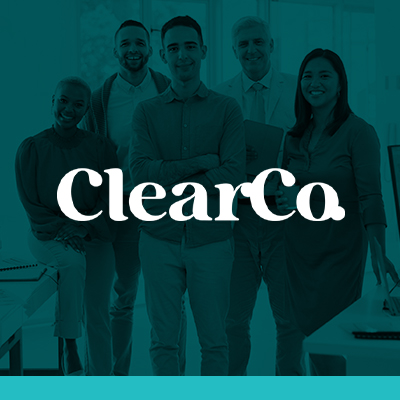
Powerful Talent Management with ClearCompany
Hire Smarter, Engage Stronger, and Perform Better with ClearCompany
Small and mid-sized businesses are prime targets for cyber threats but with LifeLock with Norton, you can offer employees powerful identity theft protection and device security. This affordable, easy-to-implement benefit helps safeguard sensitive data, build employee trust, and reduce business risk.
Show your team you value their digital security while protecting your bottom line.
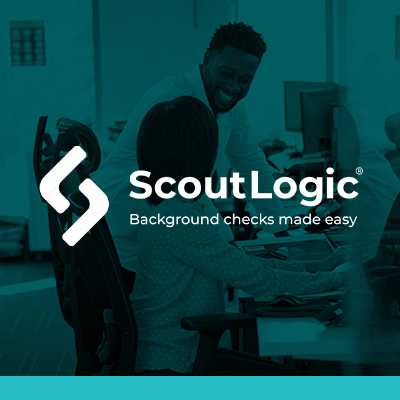
Smart, Streamlined Background Checks with ScoutLogic
Make Faster, More Informed Hiring Decisions
ScoutLogic makes background screening faster, easier, and more accurate so you can hire confidently.
Our clients gain access to comprehensive, FCRA-compliant background check solutions tailored to meet today’s hiring demands.
Whether you’re screening one candidate or hundreds, ScoutLogic’s unique Scout service model delivers dedicated support and quick turnaround times to keep your hiring process moving forward without compromising quality or compliance.

Navigating Paid Leave in CA, MA, NJ, and Beyond
Paid Leave Compliance Strategies for Multistate Employers
Paid leave requirements are evolving fast and are not always in sync. In case you missed it, our recent webinar, Navigating Paid Leave in CA, MA, NJ & Beyond, delivered expert insights from Megan Krouse, Esq., and Neil Fishner on how employers can navigate overlapping (and conflicting) leave laws.
From FMLA to state-specific mandates, we explored key provisions, best practices, and real-world examples to help multistate employers stay compliant while supporting their workforce. Whether you manage one team or several, this on-demand webinar offers clarity and actionable strategies for HR professionals, brokers, and business leaders.

Private Attorneys General Act (PAGA): What California Employers Need to Know
PAGA Updates Impacting Your Business
In case you missed it, our latest webinar covers everything California employers need to know about the Private Attorneys General Act (PAGA) and its recent legislative updates. Learn how PAGA impacts your business, what’s at stake in 2025, and what steps you can take to mitigate risk and stay compliant.
Our expert panel walks through real-world examples and outlines how a PEO like PrestigePEO can support your business through complex compliance requirements.

Key Compliance Updates for Your Business
One Big Beautiful Bill at a Glance
On July 4th, President Trump signed the One Big Beautiful Bill (OBBB) into law after multiple last-minute changes by the Senate to secure razor-thin majorities in both Chambers. The OBBB includes provisions covering topics such as modifications to the Inflation Reduction Act, state and local tax (SALT) deductions, overtime and taxes on tips, employee benefits, employer tax credits, adjustments to the ACA and Medicaid eligibility and funding, and more. This article serves as an overview and roadmap for some of the topical sections of the OBBB and their potential impacts.
No Tax on Tips and No Tax on Overtime Provisions:
Major payroll-related aspects of the OBBB important to employers include the provisions for an above-the-line tax deduction for “qualified tips” and “qualified overtime” compensation, both of which take effect for the 2025 through 2028 tax years. An extension by Congress will be required beyond 2028. These deductions will have the most significant impact on employers with tipped and hourly workers.
Section 70201: No Tax on Tips
The “No Tax on Tips” deduction is an above-the-line deduction for “qualified tips,” which has several related requirements, including that it is only for employees who work in careers where discretionary tipping is routine, such as the hospitality industry, beauty industry, and others. A complete list of eligible occupations is expected to be published by the Treasury Department by early October 2025. Additional requirements include that the amount: i) must be discretionary or paid voluntarily without any penalties for nonpayment; ii) not negotiated; and iii) solely determined by the payor. The deduction only applies to “cash” tips; however, this term is broadly defined to include tips paid by either cash or credit, as well as tips paid under a “tip-sharing” agreement. All tips subject to qualification under this new provision must be reported on the proper IRS forms, by the employer. For 2025, the Act allows for the amount designated as cash tips to be approximated, under a “reasonable method” which will be outlined by the Treasury Department at a later date.
Effective Date: December 31, 2024
Section 70202: No Tax on Overtime
The “Overtime” deduction applies to hourly workers who receive overtime wages as defined by the Fair Labor Standards Act (FLSA), and it only affects the “premium portion” of the overtime pay, or the part of pay that exceeds the workers’ regular hourly rate. State laws may differ in their requirements for overtime pay under different circumstances.
The maximum deduction for “qualified tips” is capped at $25,000 per year, and the maximum deduction for “overtime” income is capped at $12,500 per year, or up to $25,000 if married filing jointly. Individual taxpayers must earn $150,000 or less to qualify for the deduction of eligible tip and overtime income, or a combined income maximum of $300,000, if filing jointly. These amounts are scheduled to be adjusted for inflation in the coming years.
Effective Date: December 31, 2024
Employer Tax Credit Provisions
The OBBB includes two sections designed to provide tax support for employers who offer coverage for the cost of employer-provided childcare and paid family and medical leave. These provisions will offer greater tax relief for employers providing these benefits and create more substantial incentives for employers to offer such assistance.
Section 70304: Extension and Enhancement of Paid Family Leave and Medical Leave Credit
This provision makes the Paid Family Leave and Medical Leave Credit permanent, allowing employers to choose a credit based on the percentage of premiums they pay for a paid family and medical leave policy. It also clarifies that eligible employees for the credit must work at least 20 hours per week and that any paid leave mandated by a state or local government counts toward the leave used to determine the credit but cannot be used to calculate the credit amount.
Effective Date: December 31, 2025
Section 70401: Enhancement of Employer-Provided Child Care Credit
This provision increases the employer-provided childcare tax credit up to $500,000 for regular businesses and $600,000 for eligible small businesses and increases the credit percentage for qualified childcare from 25% to 40%.
Effective Date: December 31, 2025
Health Savings Accounts and High-Deductible Plan Provisions
Provisions relating to health savings accounts (HSAs) and high-deductible health plans (HDHPs) ease the eligibility requirements for individuals to make and receive contributions by allowing telehealth services to operate under HDHPs without requiring individuals to meet a deductible. This also allows more plans to be available as HDHPs, thereby expanding access to HSAs. Additionally, by permitting Direct Primary Care Service arrangements to be considered coverage under HSAs, the access and flexibility for these plans will be increased, allowing for more ease of administration and appeal to participants.
Section 71306: Permanent Extension of Safe Harbor for Absence of Deductible for Telehealth Services
This provision allows for the permanent extension of the safe harbor allowing high-deductible health plan (HDHP) coverage of telehealth services with no deductible requirement.
Effective Date: December 31, 2024
Section 71307: Allowance of Bronze and Catastrophic Plans in Connection with Health Savings Accounts
This provision includes language to define bronze and catastrophic plans as HSA-compatible high-deductible plans.
Effective Date: December 31, 2025
Section 71308: Treatment of Direct Primary Care Service Arrangements
This provision provides that direct primary care service arrangements would not be disqualifying coverage, allowing individuals enrolled in high-deductible health plans with HSAs to utilize direct primary care benefits and use funds from an HSA to cover expenses. However, certain services are excluded from treatment, including procedures that use general anesthesia, prescription drugs, and some laboratory services not administered in primary care settings.
Effective Date: December 31, 2025
Dependent Care Assistance Program Flexible Spending Account (FSA) Annual Contribution Increase
Section 70404: Enhancement of the Dependent Care Assistance Program
This provision increases the annual contribution maximum from $5,000 to $7,500, allowing for greater flexibility in FSA utilization.
As additional guidance is published, PrestigePEO will continue to monitor and provide updates on these new requirements and their impact on employers.
SCOTUS Issues Pivotal Employment Law Opinion
On June 20, 2025, the U.S. Supreme Court issued its opinion in the matter of Stanley v. City of Sanford, Florida, impacting how the Americans with Disability Act (ADA) is applied in the employment setting. The Court’s decision held that Title I of the ADA does not otherwise provide standing for claims of discrimination from retirees who do not hold employment at the time of the alleged discrimination.
The Court relied on the use of present tense grammar in the ADA’s statutory definition that protects “qualified individuals,” who are defined as a person “who, with or without reasonable accommodations, can perform the essential functions of the employment position that such individual holds or desires” to determine the extent to which these protections extend. The Court reasoned that the ADA protection does not extend to “retirees who neither hold nor seek an employment position at the time of the alleged discrimination.”
This ruling may limit the extent to which former employers may allege discrimination against prior employers for potential violations of the post-employment provision of benefits or other employment-related provisions.
PrestigePEO is here to help. If you have any questions, please reach out to your HRBP for assistance.
The Supreme Court Rules to Limit Federal Courts’ Ability to Issue Universal Injunctions
In late June, the Supreme Court of the United States published its opinion limiting federal district courts’ ability to issue nationwide injunctions, which is anticipated to have reverberating impacts on multistate employers as a patchwork of compliance requirements evolves. The Court’s ruling held “[U]niversal injunctions likely exceed the equitable authority that Congress has given federal courts and that district courts cannot issue injunctions that, “are broader than necessary to provide complete relief to each plaintiff that has standing to sue.”
As we have previously reported, for decades, employers across the country have been impacted by the ability of federal judges to issue nationwide injunctions, or court orders, that, although stemming from a specific case, function to cease federal policy nationwide. These nationwide injunctions, or “universal injunctions,” have provided a blanket method for judicial rulings on matters that, despite involving a single group of litigants, have widespread policy implications. Recent injunctions have had significant employment-related impacts on matters such as overtime rules, salary threshold increases, COVID-19 vaccine mandates, Joint Employer standards, EEO-1 Component reporting, union election rules, the FTC’s non-compete ban, and Title IX regulations, among others. The use of nationwide injunctions has provided multistate employers with predictability and certainty as to the application of various federal policies.
This has all changed with the recent ruling on a set of Trump administration lawsuits that challenged three federal judges’ abilities to issue nationwide injunctions that block one of President Trump’s recent executive orders.
Critics agree that eliminating the ability of federal judges to issue nationwide injunctions would halt broad-based, nationwide policy decisions stemming from issues between litigants in one particular lawsuit and erroneously put a freeze on policy before an appellate court has the opportunity to weigh in on the matter.
Proponents of nationwide injunctions disagree and suggest that to eliminate federal judges’ ability to issue injunctions, the judicial capacity to provide relief in matters that may present issues of widespread policy misuse would be gutted. Others argue that these types of injunctions are critical as a facet of the checks and balances system of our democracy and keep governmental bad actors in check.
Employers should be cautioned that an end to nationwide injunctions will likely foster less predictability in the application of federal policies, resulting in an increased patchwork of regional compliance requirements that differ by federal circuit. It is also predicted to increase executive agencies’ ability to implement drastic policy shifts, despite localized legal challenges, and to increase the use of the class action method of litigation to impose broad injunctive relief.
PrestigePEO is here to help. Please contact your Human Resources Business Partner with any questions.
E-Verify Guidance: Employment Authorization Document
E-Verify has announced new guidance for employers about E-Verify Case Alerts for Employment Authorization Document (EAD) revocations. Previously, the Case Alerts notified employers if their employee’s EAD had been revoked. Now, Case Alerts will not include such information, and employers are encouraged to run the Status Change Report to determine if any employees have an EAD that has been revoked. The Status Change Report can be accessed from an employer’s E-Verify home page (after logging in to the account) and is available as an option under the “Reports” tab. Once an employer has identified that an employee’s EAD has been revoked, employers should immediately begin the re-verification process using Form I-9, Supplement B.
According to E-Verify guidance, employers should not open a new E-Verify case when re-verifying an employee’s authorization to work. Employers must request that employees provide any List A or C documents, and employees may also provide an Acceptable Receipt. If an Acceptable Receipt is provided, once the replacement document arrives, the employee should submit it to their employer, and the employee’s I-9 form must be updated to reflect the new documentation. The chart listing Acceptable Receipts can be found here. If an employee is no longer authorized to work after the re-verification process, they may not continue working for their employer.
PrestigePEO is here to help! If you have any questions regarding E-Verify or the re-verification process, please contact your HR Business Partner.
The Changing Landscape for LGBTQ+ Protections under Title VII and the Trump Administration
Employers now face navigating a constantly changing landscape of federal and state interpretations of LGBTQ+ protections under Title VII. Although protections still exist under Title VII and at the state level (in some states), there is inconsistent interpretation and enforcement of these protections.
In the latest challenge to the Equal Employment Opportunity Commission’s 2024 Guidance on Harassment, a Federal Court in Texas ruled in Texas v. Equal Employment Opportunity Commission that the EEOC had exceeded its authority and improperly defined specific terms related to sex, gender identity, and sexual orientation.
While this ruling cancels much of the 2024 EEOC guidance issued under the Biden Administration, it aligns with Trump Administration policies by emphasizing accountability on States. Different courts across the United States have interpreted Title VII protections and harassment differently. This inconsistency creates challenges for employers. Therefore, employers are advised to refer to state laws and guidelines when making decisions related to gender, sex, sexual orientation, and gender identity.
PrestigePEO continues to monitor related court challenges and potential legislation about LGBTQ+ protections.
Alabama Pioneers Tax-Free Portable Benefits Program for Independent Contractors and Gig Workers
Alabama’s groundbreaking Portable Benefit Account law, signed April 10 and taking effect December 31, 2025, gives businesses a unique, voluntary way to provide benefits to independent contractors without changing their classification or triggering payroll tax issues.
Unlike traditional employee benefits, these contributions go into worker-owned accounts to fund insurance, retirement, and other plans. The structure offers rare tax advantages: companies deduct the cost as a business expense, and contractors aren’t taxed on the value they receive.
For employers, this marks a major shift. You can now attract and retain skilled gig workers by offering real financial security without risking misclassification under Alabama law. The statute clearly states that contributions do not create an employment relationship or workers’ comp obligations.
To participate, contractors must open an approved benefit account. Businesses can contribute directly or withhold a portion of pay under a written agreement. Importantly, participation is optional for both sides.
This is the first law in the nation to combine benefit portability and dual tax relief, giving Alabama-based businesses an early advantage in the evolving gig economy.
PrestigePEO is here to help. Please contact your HRBP with any questions.
California Increases Local Minimum Wages
On July 1, 2025, multiple California cities raised their minimum wages. California has a state minimum wage set at $16 per hour, with two industry-specific minimums: $20 per hour for the fast-food industry and a minimum schedule for healthcare workers, which includes different wage rates for certain healthcare employees. You may find information about the healthcare minimum wage schedules defined in California SB-525. In addition to industry-specific minimum and the state minimum, localities may establish their own minimum wages. PrestigePEO has compiled a list of those cities to ensure that your minimum wage is in compliance.
| Locality | Current Minimum Wage | New Minimum Wage |
| Alameda | $16.52 | $17.00 |
| Berkeley | $18.07 | $18.67 |
| Emeryville | $18.67 | $19.36 |
| Fremont | $16.80 | $17.30 |
| City of Los Angeles | $16.78 | $17.28 |
| County of Los Angeles (unincorporated areas only) | $16.90 | $17.27 |
| Malibu | $16.90 | $17.27 |
| Milpitas | $17.20 | $17.70 |
| Pasadena | $16.93 | $17.50 |
| San Francisco | $18.07 | $18.67 |
| Santa Monica | $16.90 | $17.27 |
| West Hollywood | $19.08 | $19.61 |
Enforceability of Non-Solicitation and Restrictive Covenants under New Kansas Law
Beginning July 1st, Kansas Bill SB 241 came into effect providing clearer guidance and more protection for businesses seeking to enforce restrictive covenants. SB 241 was signed by Governor Laura Kelly on April 8, 2025, amending the Kansas Restraint of Trade Act, which was originally enacted to prohibit agreements that restricted trade and commerce. This Act has been amended on several occasions, but the most recent amendment attempts to clarify the enforceability of employee and customer non-solicitation covenants. Employee and customer non-solicitation covenants are contracts between employers and employees that prevent employees from soliciting clients and customers from the employer after leaving the employer’s workforce for a specific period of time and within a certain geographic area. The amendment passed by the Kansas legislature goes against the broader national movement to restrict or ban such covenants by taking a more employer-friendly approach allowing for greater and clearer enforceability.
SB 241 includes language providing that that non-solicitation provisions are “conclusively presumed” to be enforceable if they satisfy certain criteria.
For employee non-solicitation, the restriction must:
- Seek to protect the employer’s confidential, customer, or supplier relationships, or trade secret information,
OR
- Must not continue for more than two years following the employee’s employment.
For customer non-solicitation, the restriction cannot extend longer than two years and must be limited to “material contact customers.” Material contact customers are defined as “any customer or prospective customer that is solicited, produced or serviced, directly or indirectly, by the employee or owner at issue or any customer or prospective customer about whom the employee or owner, directly or indirectly, had confidential business or proprietary information or trade secrets in the course of the employee’s or owner’s relationship with the customer.”
The Kansas legislature did carve out the ability of the court to make modifications to agreements that are determined to be overbroad or “otherwise not reasonably necessary to protect a business interest…” In these circumstances, the court would have the authority to modify the agreement and grant only relief necessary to protect those business interests.
While the intent of the bill is to provide certainty with a presumption of enforceability, there is question as to how conclusive the presumption is as individuals may challenge the provision’s reasonableness in order to receive court relief. However, it does establish a clearer framework for the definitions of an enforceable non-solicitation agreement in various contexts. Kansas employers should review their existing agreements to determine if the language and provisions of their restrictions are in line with the new legislation.
PrestigePEO is here to help. Please contact your HRBP with any questions.
Massachusetts distinguishes between Non-Solicitation and Non-Compete Agreements
The Massachusetts Supreme Judicial Court issued a ruling in Miele v. Foundation Medicine on July 13, 2025, clarifying the distinction between non-solicitation and non-compete agreements between employers and their employees. The Court ruled that non-solicitation agreements, even if they contain forfeiture clauses, are not subject to the Massachusetts Noncompetition Agreement Act (MNAA).
This rule provides businesses with more flexibility to use non-solicitation agreements without triggering the MNAA’s strict requirements. If the agreement only prevents an employee from attempting to solicit clients or employees after they leave, it is likely not considered a non-compete under Massachusetts law.
Employers are encouraged to review their non-solicitation agreements and any non-compete agreements in light of this decision.
PrestigePEO is here to help. Please contact your HRBP for assistance with any questions.
Missouri’s Paid Sick Leave Requirement Formally Repealed
As of this month, Missouri state lawmakers’ efforts to overturn Proposition A have been formally signed into law by Governor Kehoe, with an effective date of August 28, 2025. As we have been monitoring since December 2024, Missouri voters approved Proposition A, a ballot initiative that provides Missouri workers with paid sick leave, effective May 1, 2025.
Proposition A is a voter referendum that changed state law, but did not change the state’s constitution, and lawmakers disagreed with this initiative. On May 15, 2025, the state senate repealed these new requirements, resulting in the passage of House Bill 567, which had been sitting on the governor’s desk awaiting final approval until recently.
As of August 28, 2025, employers will no longer be required under state law to provide employees with paid sick leave. However, all employers are encouraged to continue complying with these requirements until this date. Employers are also encouraged to assess how this rapid shift in legal requirements will impact their workforce, as well as any associated morale issues that may arise if they choose to eliminate existing sick leave policies.
PrestigePEO is here to help. Please contact your HRBP with any questions or necessary updates to your existing policies.
New York Raises Mandatory Jury Duty Pay for Employers Beginning June 8, 2025
Effective June 8, 2025, New York employers with 11 or more employees must comply with updated compensation rules under Section 519 of the Judiciary Law. The daily minimum payment for employees on jury duty will increase from $40 to $72 for the first three days of service. This is the first-rate adjustment in decades and was enacted as part of the 2025–2026 state budget.
Here’s what this means for employers:
- Non-exempt employees must receive at least $72/day for the first three days of jury service. After that, leave may be unpaid unless a more generous policy applies.
- Exempt employees must receive their full salary for any week they perform work, even if serving on a jury. Employers may offset state-paid jury fees.
- Employers with 10 or fewer employees are not obligated to pay; the state covers the fee.
Retaliation remains prohibited. Penalizing or firing an employee for fulfilling jury service is a criminal offense under New York law.
To comply, employers must update handbooks, payroll systems, and employee communications.
PrestigePEO is there to help. Please contact your HBRP for questions regarding your existing policies and to ensure compliance with state and federal jury duty obligations.
New York Advances Workplace Laws as Legislative Session Closes
The first half of New York’s 2025 legislative session concluded in June, with lawmakers advancing a range of new employment laws. Several key workplace bills have passed both chambers and now await the Governor’s signature. If signed, they will become law. Others passed only the Senate, so these bills remain active when lawmakers return next year.
The following bills will become law if signed:
- Ban on Credit Checks in Hiring – Employers will no longer be permitted to request or utilize a job applicant’s credit history, with exceptions for specific roles involving financial authority or legal obligations.
- Disparate Impact Standard – Clarifies that policies that appear neutral but adversely affect protected groups may still be considered discriminatory under state law, even if not intentional.
- Anti-Retaliation for Accommodation Requests – Protects workers from retaliation just for requesting a reasonable accommodation.
- Worker-Friendly Labor Law Interpretation – Directs courts to interpret New York’s wage and hour laws in favor of employees, even if federal courts interpret similar laws differently.
- “Trapped at Work” Act – Prevents employers from forcing employees to pay back training expenses if they leave their position, unless the repayment is genuinely voluntary and meets strict standards.
- Expanded Paid Family Leave Access for Construction Workers – Makes it easier for unionized construction workers with multiple employers to qualify for Paid Family Leave.
- State Enforcement of Labor Rights – Grants the state authority to enforce labor rights, such as union organizing protections, when federal enforcement is insufficient.
- Naloxone in First-Aid Kits – Requires certain employers to include opioid overdose medication in their mandated first-aid kits.
- Hospital Workplace Violence Prevention – Requires hospitals to develop workplace violence prevention plans, perform yearly risk assessments, and train staff.
- Recovery Ready Workplace Program – Creates a voluntary state certification for employers who actively support workers in recovery from substance use disorder.
- Artificial Intelligence Safety – The RAISE Act requires companies using specific high-risk AI systems to evaluate safety, reduce algorithmic bias, and disclose how those systems are used.
Other bills passed the New York Senate but have not yet been taken up by the Assembly.
The following bills remain eligible for consideration in 2026:
- Ban on Non-Compete Agreements – Would render most non-competes unenforceable for employees earning less than $500,000 annually.
- Severance Review Period – Would allow all employees at least 21 days to review a severance agreement and 7 days to revoke it after signing, regardless of age, mirroring current protections for workers over 40.
- Limitations on Waiving Rights – Would render contract provisions that waive employee rights under New York’s Labor Law or Human Rights Law invalid.
- Disclosure of NDA Limits – Would require employees to be notified that NDAs cannot prevent them from reporting crimes or discrimination to law enforcement.
- Limits on reducing jury awards – Would limit courts’ ability to lower damages awarded by juries in discrimination cases.
- Class Action Clarification – Would allow employees to pursue liquidated and statutory damages through class action lawsuits for wage violations.
- Ban on Age-Related Hiring Questions – Would prohibit asking about an applicant’s age or graduation year unless age is a job requirement.
- Lower Burden for Bias Claims – Would allow discrimination claims to succeed even if bias wasn’t the only reason for an employment decision.
- Extended Deadline to File Bias Claims – Would allow employees up to six years (instead of three) to file discrimination claims under state law.
- Expanded Short-Term Disability Benefits – Would gradually increase short-term disability benefits and permit use after a stillbirth.
- Mental Health Resource Notices – Would require employers to share information about available mental health resources with employees.
Looking Ahead
New York continues to pursue reforms in employment law. Several bills have already passed both chambers and are awaiting the Governor’s signature. Others are expected to advance in 2026. Employers should stay alert to these changes, as the bills may require updates to job applications, offer letters, separation agreements, leave policies, and other related documents.
Given the changing landscape, PrestigePEO continues to monitor the situation and will help keep your business informed and proactive.
New York’s Proposed AI Safety Law and the RAISE Act
New York is set to become one of the first states in the nation to regulate advanced artificial intelligence systems with its proposed AI safety legislation. This bill targets the development and deployment of so-called “frontier models,” which are extremely powerful AI systems that cost more than $100 million to train. These frontier models could potentially operate without human oversight and pose risks, including misuse in areas like biological research or cyberattacks.
Key provisions include requiring developers to maintain up-to-date safety protocols and report any “safety incidents” within 72 hours. Under the RAISE Act, these “safety incidents” specifically refer to events where the AI system causes harm, malfunctions, or creates serious risks. The bill also bans the release of models that pose significant risks. Enforcement will be managed by the New York Attorney General’s office and the Division of Homeland Security. Penalties for violations are strict, with fines up to $10 million for a first offense and $30 million for repeated violations.
While most small and midsize businesses are unlikely to develop such frontier AI systems themselves, the legislation could still impact your operations if you use or implement these powerful AI models within New York.
Beyond New York, several other states, including California, Massachusetts, and New Jersey, are also creating or passing AI-related rules focused on transparency, data privacy, and responsible AI use. These laws often require disclosures about AI involvement in products or services and set standards for protecting consumer data. Although these states’ laws differ in scope and enforcement, they show a broader trend of state-level AI regulation that employers should carefully monitor.
Employers should stay informed about these changing regulations, especially as advanced AI becomes more integrated into business activities.
PrestigePEO is here to help. Please get in touch with your HR Business Partner with any questions.
Oregon’s New Hiring and Pay Transparency Laws
Two new Oregon laws will soon change employer responsibilities regarding hiring and onboarding. Starting September 28, 2025, employers will no longer be permitted to ask job applicants for their age, date of birth, or attendance or graduation dates from educational institutions before an initial interview or a conditional offer. This change comes from HB 3187. Exceptions for bona fide occupational qualifications, such as roles requiring a specific age for legal or performance reasons, are very limited.
Employers should review application forms and recruitment platforms to ensure these questions are removed. Managers should be trained to ignore any voluntarily shared age-related details to avoid compliance risks.
Beginning January 1, 2026, Oregon employers must also provide new hires with clear information about pay transparency. This includes details on pay periods, all possible pay rates, deductions, benefits, payroll codes, and allowances related to the minimum wage. These requirements are part of SB 906. Employers can share this information via posted notices or digital access, and the Oregon Bureau of Labor and Industries will provide a model document for reference.
These changes necessitate updates to hiring and onboarding procedures to ensure compliance when the laws come into effect.
PrestigePEO is here to help. Please contact your HRBP with any questions regarding these new regulations and their potential impact on your organization.
Pittsburgh Updates Paid Sick Leave Rules
Effective January 1, 2026, any employer with at least one employee within Pittsburgh city limits will be required to increase both the accrual rate and the amount of paid sick leave employees may earn. Under the current Paid Sick Days Act (PSDA), which was passed in 2015 and implemented in March 2020, employees are entitled to earn at least one hour of paid sick leave for every 35 hours worked in the city. The new ordinance, signed by Mayor Gainey in June, allows for a faster accrual rate of at least one hour of paid sick leave for every 30 hours worked within the city.
In addition to a modified accrual rate, the new ordinance allows for an increase to the maximum accrued paid sick leave hours for both employers with 15 or more employees and those with fewer than 15 employees. Currently, those employers with 15 or more employees may earn up to 40 hours of paid sick leave per year. As of January 1, 2026, the maximum accrued hours will increase to up to 72 hours of paid sick leave. For smaller employers, or those with fewer than 15 employees, the annual accrual maximum will increase from 24 hours to a maximum of 48 hours of paid sick leave.
Employers are encouraged to familiarize themselves with these upcoming changes and make any necessary modifications to their paid sick leave policies. It is important to remember that the PSDA also requires employers to post notices informing employees about their rights under the law. The ordinance requires employers to allow for the carryover of unused time from year to year, or alternatively, to front-load the full, required number of hours for each employee annually. Paid sick leave is available for employees to use for their own medical care or that of family members, as well as to seek preventive medical treatment.
PrestigePEO is here to help. Please reach out to your HRBP for assistance with updating your paid sick leave policy or with any questions.
Vermont Overhauls Family Leave Law with New Rights for Victims, Military Families, and Nontraditional Caregivers
Effective July 1, 2025, Vermont’s Act 32 brings major changes to the state’s unpaid family leave law, requiring employers with 10 or more employees to expand access to protected time off for a wider range of personal and family needs.
The revised law introduces:
- Safe Leave for employees or their family members experiencing domestic violence, sexual assault, or stalking.
- Bereavement Leave for up to five consecutive days after a family member’s death.
- Military Exigency Leave for situations involving a spouse, child, or parent on active duty.
Act 32 also broadens the definition of “family member” to reflect modern caregiving relationships, including domestic partners, foster children, legal guardians, and those in a parent-like role, regardless of legal status. This change ensures coverage for LGBTQ+ employees and others in nontraditional family structures.
Though the total leave remains capped at 12 weeks per year, employees may now take time off for a wider array of events, with updated notice and documentation rules for emergencies and unexpected circumstances.
PrestigePEO is here to help your organization update policies, educate staff, and remain compliant as Vermont’s expanded leave protections take effect. Please contact your HRBP with any questions.
Know a business that could benefit from better HR support, enhanced employee benefits, or expert compliance guidance? When you refer them to PrestigePEO, you can earn up to $2,500 per successful referral.
There’s NO CAP on how many businesses you can refer; it’s just a simple way to help others while earning cash for making valuable connections. It’s a win-win for your network and your wallet.
Feedback
Have ideas for our next newsletter? We’d love to hear from you! Whether it’s suggestions, questions about our services, or program inquiries, our team is here to help.
Email us at marketingteam@prestigepeo.com to share your thoughts or learn more. Let’s collaborate and grow together!

